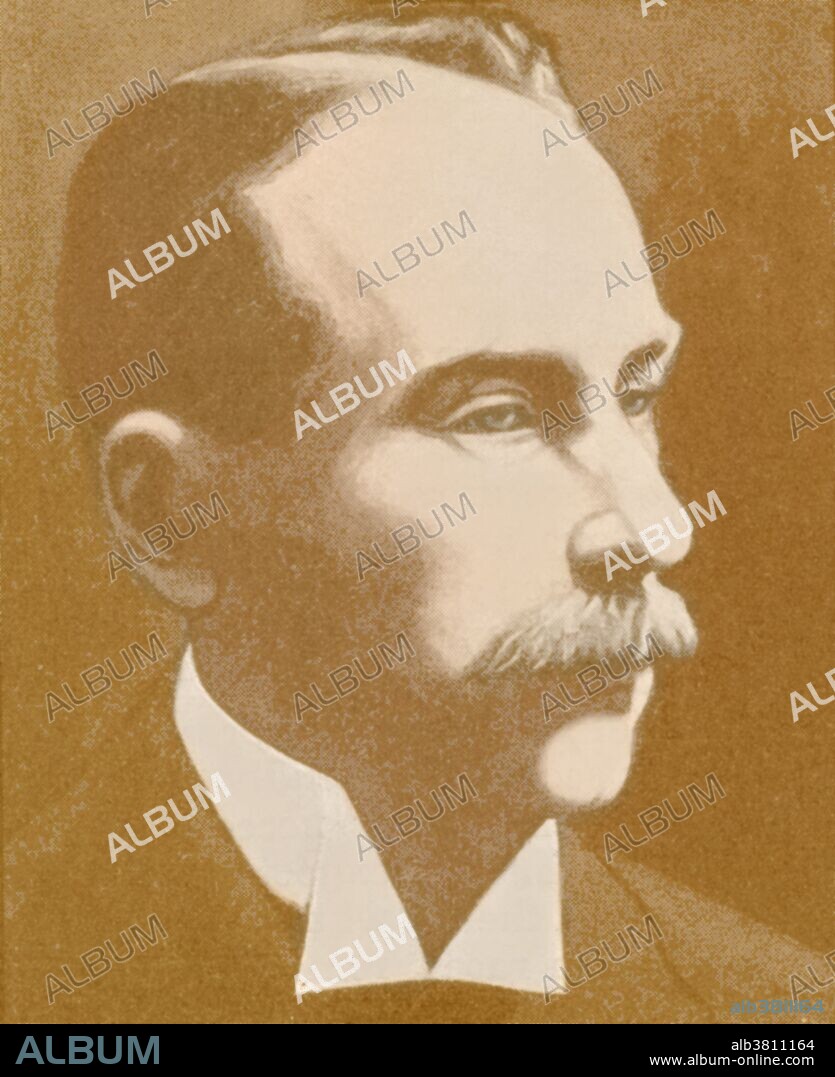alb3811164
Jules Bordet, Belgian Immunologist

|
Zu einem anderen Lightbox hinzufügen |
|
Zu einem anderen Lightbox hinzufügen |



Haben Sie bereits ein Konto? Anmelden
Sie haben kein Konto? Registrieren
Dieses Bild kaufen.
Nutzung auswählen:

Titel:
Jules Bordet, Belgian Immunologist
Untertitel:
Siehe automatische Übersetzung
Jules Jean Baptiste Vincent Bordet (June 13, 1870 - April 6, 1961) was a Belgian immunologist and microbiologist. He began his work at the Pasteur Institute in Paris in 1894, where he described phagocytosis of bacteria by white blood cells. In 1898 he described hemolysis evoked by exposure of blood serum to foreign blood cells. In 1900, he left Paris to found the Pasteur Institute in Brussels. His experiments helped establish the basics of immunology, that the body creates antibodies in a defensive response to certain antigens. He developed the complement-fixation reaction with bacteriologist Octave Gengou, a breakthrough which allowed August von Wassermann to develop the Wassermann test to diagnosis syphilis. The same basic principles led to diagnostic tests for typhoid fever, carbuncle, and hog cholera. Bordet and Gengou discovered B. pertussis, the microbe that causes whooping cough, leading to development of a vaccination against that deadly disease. He also conducted important studies on the coagulation of blood, and discovered B. bronchiseptica, which causes infectious bronchitis. The Nobel Prize in Physiology or Medicine was awarded to him in 1919 for his discoveries relating to immunity. He died in 1961 at the age of 90.
Bildnachweis:
Album / Science Source / New York Public Library
Freigaben (Releases):
Model: Nein - Eigentum: Nein
Rechtefragen?
Rechtefragen?
Bildgröße:
2676 x 3281 px | 25.1 MB
Druckgröße:
22.7 x 27.8 cm | 8.9 x 10.9 in (300 dpi)
Schlüsselwörter:
BELGIER • BELGISCH • BERÜHMT • BERÜHMTE PERSÖNLICHKEIT • EUROPAEER (F M) • EUROPAEER • EUROPÄER (F M) • EUROPÄER • EUROPÄISCH • ILLUSTRATION • ILLUSTRATIONS • IMMUNOLOGIE • MANN • MIKROBIOLOGIE • NATURWISSENSCHAFTLER • NOBEL • NOBELPREIS • NOBELPREISTRAEGER • NOBELPREISTRÄGER • NOTABEL • PERSON • PERSöNLICHKEITEN • PERSÖNLICHKEITEN • PORTRAIT • PROMINENZ • WISSENSCHAFTLER • WISSENSCHAFTLICH
 Pinterest
Pinterest Twitter
Twitter Facebook
Facebook Link kopieren
Link kopieren Email
Email
